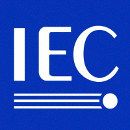About OpenDocument Format


Open Document Format (ODF) is an international family of standards that is the successor of commonly used deprecated vendor specific document formats such as .doc, .wpd, .xls and .rtf. ODF is not software, but a universal method of storing and processing information that transcends specific applications and providers. ODF is not only more flexible and efficient than its predecessors, but also future proof. Public sector, business and cultural content must not be lost if a supplier decides to no longer support legacy file formats, while other software cannot deal with those files. With ODF you avoid that risk: it is an international standard actively supported by multiple applications, and it can be safely implemented in any type of software, including open source software - such as is common on the majority of mobile phones and tablets these days. The societal importance of the move to ODF is therefore considerable.
In any normal office situation you will be using ODF in your word processor or spreadsheet, but it is just as easily incorporated into software frameworks, business software, web applications or a with a braille reader. For people with visual disabilities, ODF is a major advance as it means access to a richer range of applications. A growing number of governments are switching over to ODF for exchanging information. There are many applications that could get you started today too. Make sure you're ready for the future!
With ODF the way you store documents does not determine the software you work with. Files in the OpenDocument Format (ODF) are platform independent and do not rely on any specific piece of software whatsoever. Every software maker can implement without having to pay royalties. Although technically behind the scenes all Office applications now use the same ISO-standardized format, for the convenience of new users is was chosen to use separate names for the different applications - just like they are used to. You recognize these by their "extensions": .odt (text) .ods (for spreadsheets), .odp (for presentations), and so on.
How to work with ODF
If all is well in most situations you won't really notice that you are using ODF, it works just like the old file formats. In many of the latest versions of Office suites, word processors, spreadsheets and presentation software you work with, you do not have even have to do anything special as they automatically create new documents directly in ODF. This applies for instance to popular solutions like OpenOffice.org, IBM Lotus Symphony, LibreOffice and Calligra - all of which have ODF as their default file format. When you install the latest version of Microsoft Office for Windows, you can opt to make ODF your default file format too.
The same applies to online software such as Google Docs and Zoho Office, which also use ODF as a standard. Why would you even consider storing your valuable information in a deprecated file format that was written off by the entire market, including the companies that created them, if you can have a reliable, future-proof and widely supported international standard that is supported by the same products?
If you are using alternative products that support ODF natively next to application specific formats, you just select OpenDocument format when you "save as". You can use one of these solutions to convert existing documents (eg. a .doc file) safely to ODF.

